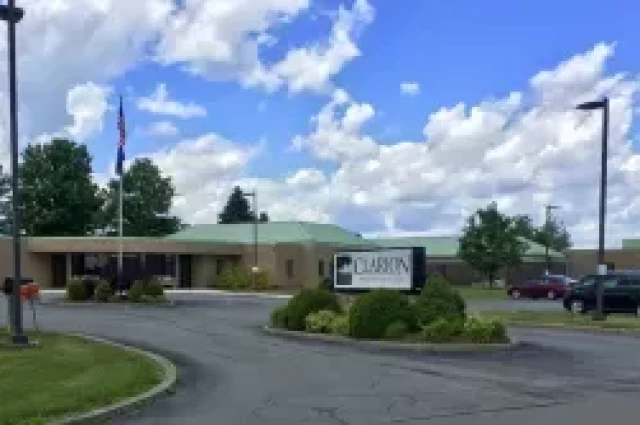Clarion Psychiatric Center Information
Treatment
Who We Treat
- Young Adults (18–25)
- Adolescents
- Children
- Midlife Adults
- Older Adults
- Male and Female
Treatment Focus
- Anxiety
- Depression
- Co-Occurring Disorders
- Drug Addiction
- Alcohol
Approaches
- Group Therapy
- Family Therapy
- Medical
- Stress Management
- Evidence-Based
- 1-on-1 Counseling
- Cognitive Behavioral Therapy (CBT)
- Art Therapy
- Nutrition Counseling
- Personalized Treatment
- Individual Treatment
Conditions We Treat
- Post Traumatic Stress Disorder
- Anxiety
- Depression
- Schizophrenia
- Grief and Loss
- Suicidality
- Personality Disorders
- Stress
- Bipolar
Substances We Treat
- Alcohol
Aftercare
- Continuing Care
Level of Care
- Day Treatment
- Outpatient
Experience
Smoking and Vaping Policy
- Smoking Allowed in Designated Areas
- Vaping Not Allowed
Clarion Psychiatric Center Accepts The Following Insurance Plans
Find the best treatment options. Call our free and confidential helpline today!

